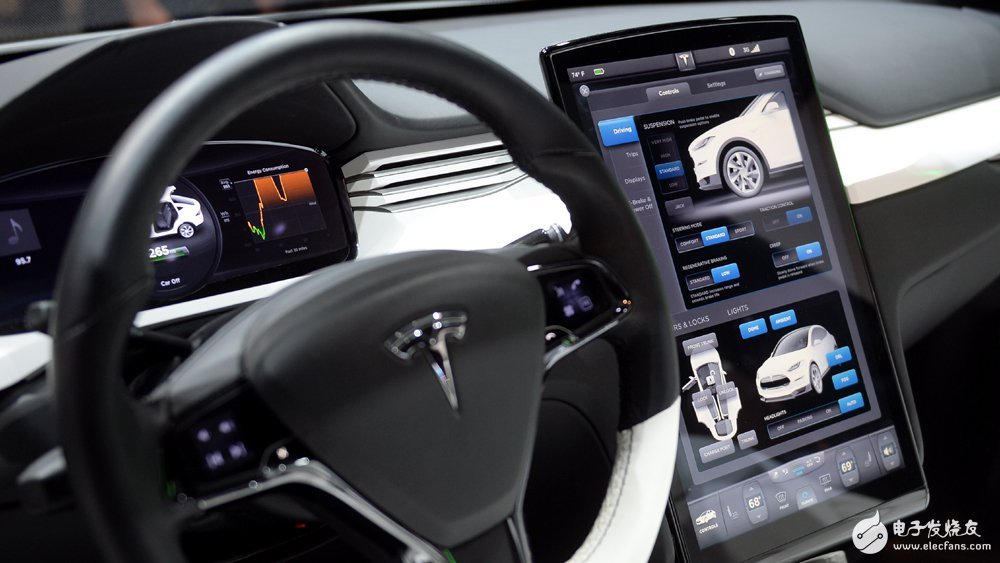Apple suppliers compete for the IoT market Tesla to save chip makers?
The slowdown in smartphone sales, represented by the Apple iPhone, has caused smartphone chip suppliers to suffer a setback. In search of a new growth engine, they are eyeing the IoT market, including cars. However, some insiders believe that most IoT devices are inexpensive and offer less growth opportunities than smartphones. The following is the full text of the article:
Tesla CEO Elon Musk plans to produce 1 million electric cars by 2020, which could be a "welfare" for chip makers that suffered the first decline in Apple's iPhone sales. Since 2007, the iPhone has been the driving force behind the growth of many Apple suppliers.
Now, the desire for the next growth area has led many chip makers to target the automotive and IoT markets, although smartphones are still a major source of profit for some chip makers.
Bill Kreher, an analyst at investment firm Edward Jones, said, “I think there is a huge business opportunity in the IoT market, and cars are part of it. Over time, this market will spread rapidly. The promise of increased productivity will drive The market is growing for a long time. The market will reshuffle every few years, and the most innovative technology will win. We believe that the Internet of Things will be the next battlefield,"

Claire expects that the Internet of Things market, including automobiles, will increase by 10%-15% annually in the next three years.
Sensors such as Analog Devices, NXP Semiconductors (hereinafter referred to as "NX") and Texas Instruments, analog chip manufacturers such as MaxLinear and Maxim Integrated Devices, and graphics chip manufacturers such as NVIDIA are considered to be ready to enter the IoT market.
But not everyone is optimistic about the Internet of Things. Robert Maire, president of technology consultancy Semiconductor Advisers, calls the current car "a PC on wheels," but he says other types of IoT devices typically use chips that are cheaper than smartphones.
Skyworks SoluTIons CEO David Aldrich said in April that the IoT market capacity "can reach tens of billions of devices," but Meyer said, this does not mean that chip makers' revenue will grow rapidly. "The Internet won't replace smartphones, because the Internet of Things typically uses relatively backward chip technology. In smart thermostats that cost $75-$100, semiconductor products typically cost about $5." Dismantling the website iFixit data shows that in each iPhone 6, Qualcomm chips cost $20-22.
However, companies such as Qualcomm and Integrated Device Technology (hereafter referred to as "IDT") are eyeing other areas than smart phones such as smart cities, smart devices and smart cars. Tesla, Apple and Google, as well as traditional car manufacturers, are developing smart cars.
Apple suppliers compete for the Internet of Things market
The IoT chip market is large, but it covers many areas. Last year, McKinsey predicted that the Internet of Things market would reach 3.9 trillion to 11.1 trillion US dollars by 2025, meaning that the Internet of Things will account for more than 10% of the global economy.
In April, Business Intelligence, a research arm of Business Insider, estimated that the number of IoT devices will reach 24 billion in 2020, and the investment in IoT solutions will exceed $6 trillion in the next five years.
Not all Apple chip suppliers are interested in taking a slice of the IoT market. Broadcom sold the IoT business to Cypress Semiconductor for $550 million in April. In the past 12 months, Broadcom's IoT business unit revenue was only $189 million, accounting for 3% of the company's revenue.
RF chip makers Qorvo and Skyworks entered the IoT market through acquisitions. Qorvo acquired IoT chip supplier GreenPeak in April. GreenPeak produces ultra-low-power, short-range wireless chips for smart homes.
Aldrich estimates that by the end of 2020, the average annual growth rate of the Internet of Things market was 83%.
Featuring level VI energy efficiency and meet IEC/EN/UL 62368 safety standards for ITE/AV equipment, the external universal power adapter accepts the output power rating of 54W with universal AC input voltage range from 100-240VAC and provides 3 Years warranty. These series power adapters use PC flame retardant material housing, all materials conform to the international environment protection standard. Protections for over voltage, over current and short circuit are also included.
RoHS Adaptor,Universal Ac/Dc Adapter,Power Ac Dc Adapter,Universal Power Supply Adapters,Power Adaptor Safety Mark
Shenzhenshi Zhenhuan Electronic Co Ltd , https://www.szzhpower.com
